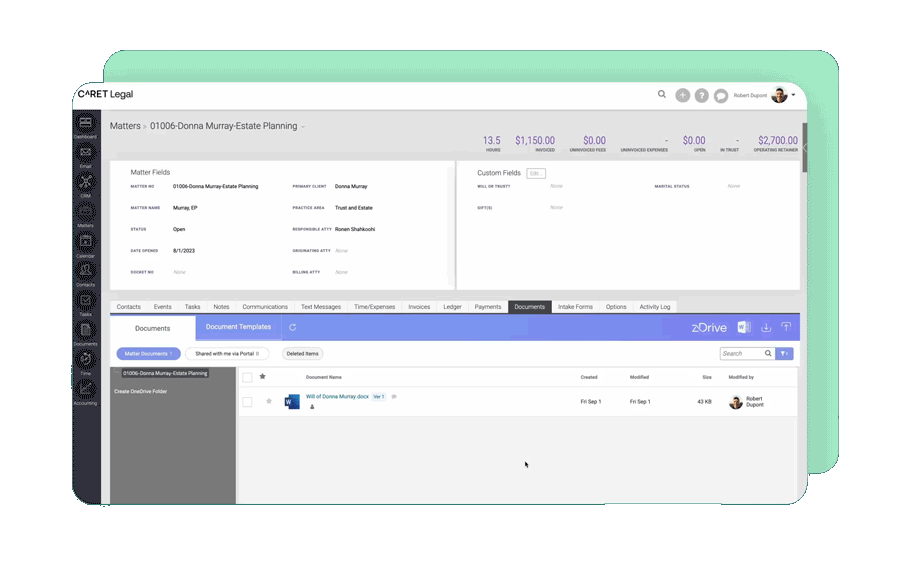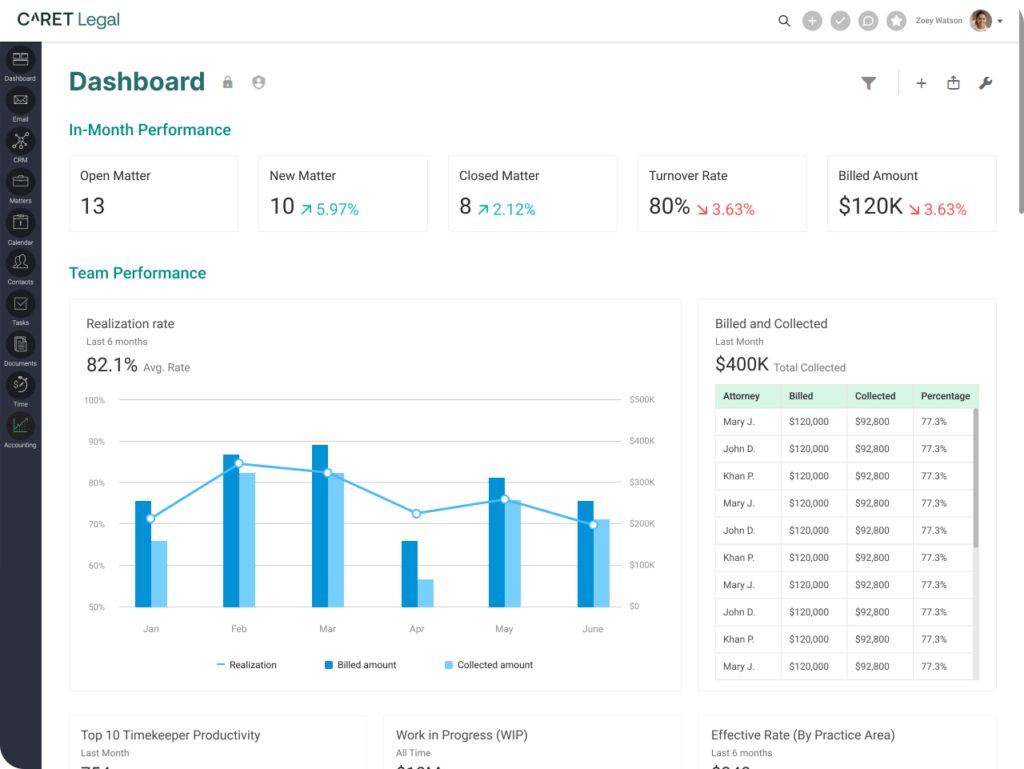Clients now demand real-time updates, clear cost projections, and rapid resolution of their cases, putting additional pressure on legal teams to optimize their processes.
The economic impact of prolonged dispute resolution in high-value cases cannot be overstated. Direct costs can be considerable, with resources being tied down and diverted from other areas of your practice. The right legal tech can expedite case resolution, reducing overhead costs, and allowing your team to take on new, more profitable cases.
Trends in Complex Dispute Resolution
Recent trends in high-stakes litigation have significantly impacted the dispute resolution landscape. Multi-jurisdictional cases have become increasingly common, requiring legal teams to navigate complex international laws and regulations. Data-intensive disputes, fueled by the explosion of digital information, have lengthened discovery processes and case preparation timelines.
Traditional methods of case management are falling short. Manual document review, fragmented communication channels, and outdated financial tracking systems simply can’t keep pace with the volume and complexity of information involved in today’s high-value disputes.
On top of that, client expectations for speed and transparency in high-value disputes are rising. Clients now demand real-time updates, clear cost projections, and rapid resolution of their cases, putting additional pressure on legal teams to optimize their processes.
Move Beyond Basic Case Management
Modern legal practice management software (LPMS) offers a suite of advanced features that make it easier for law firms to handle complex disputes. These sophisticated systems go far beyond simple case tracking, providing comprehensive solutions that are becoming indispensable for today’s legal professionals.
Intelligent Document Management Systems
In the era of information overload, efficient document management is crucial for successful dispute resolution. Advanced LPM platforms revolutionize how legal teams handle the vast amounts of case-related information, offering intelligent solutions that streamline workflows and enhance accuracy.
Key features of these cutting-edge document management systems include:
- Quick Document Summaries: AI features like CARET Legal’s quick summary simplifies the process of understanding lengthy documents by offering brief, yet thorough overviews. With a swift look, you can comprehend the primary points, crucial insights, and significant conclusions. Whether you need to find a document promptly or jog your memory on a collection of documents, Quick Summary takes on the hard work. It distills intricate information into an accessible, easy-to-read summary, making your review process smoother and more efficient.

- Advanced OCR And Text Analysis: Rapidly categorize documents, automating the organization of vast case-related information. This technology can scan and interpret various document types, from handwritten notes to complex legal agreements, automatically tagging and filing them based on content. This drastically reduces the time spent on manual document sorting and improves accuracy.
- Semantic Search Capabilities: Enable quick retrieval of relevant information, even when exact keywords are unknown. Unlike traditional keyword searches, semantic search understands the context and intent behind queries, allowing legal professionals to find pertinent documents using natural language. This is particularly valuable in complex cases with extensive documentation.
- Robust Version Control and Audit Trails: Maintain document integrity, providing a clear history of all changes and access. Every edit, view, and download is meticulously recorded, ensuring that all team members are working with the most up-to-date information. This feature is crucial for maintaining accuracy and accountability, especially in collaborative environments.
Secure Collaborative Workspaces
As legal work becomes increasingly global and remote, the need for secure, accessible collaborative spaces has never been greater. Modern legal practice management solutions rise to this challenge by providing robust, protected environments that facilitate teamwork while maintaining the highest standards of data security.
These secure collaborative workspaces typically offer:
- Role-Based Access Control: Ensures sensitive case information is only accessible to authorized team members. This granular approach to permissions allows firms to create custom access levels for different team roles, from paralegals to senior partners, maintaining confidentiality while enabling efficient collaboration.
- End-to-End Encryption: Encryption for all stored and transmitted data, providing peace of mind for both firms and clients. This bank-grade security measure protects sensitive information from unauthorized access, whether it’s stored in the cloud or being shared between team members.
- Distributed Ledger Technology: Creates an immutable record of all case-related actions, enhancing accountability and transparency. This feature provides an unalterable audit trail of every action taken within the system, crucial for maintaining the integrity of case information and building trust with clients.
Automated Workflow Orchestration
The complexity of modern legal cases demands a level of process management that manual systems simply can’t provide. Advanced LPMS platforms offer sophisticated workflow orchestration tools that automate routine tasks, standardize processes, and provide real-time insights into case progress.
These features work in concert to dramatically improve efficiency and reduce the risk of errors:
- Customizable Workflow Templates: Tailored to different types of disputes, ensuring consistent case management across the firm. These templates can be fine-tuned for various practice areas or case types, standardizing processes and reducing the risk of overlooked steps in complex procedures.
- Rule-Based Task Assignment and Deadline Management: Reducing administrative burden and minimizing oversights. The system can assign tasks based on predefined rules such as team members’ roles. It also manages deadlines, sending timely reminders minutes, hours, days or weeks before a task is due.
- Real-Time Progress Tracking and Bottleneck Identification: Allowing team leaders to optimize resource allocation on the fly. Keep track of your case’s progress proactively and prevent potential delays by monitoring it in real-time at every stage.
Integrated Financial Management
In high-stakes disputes, financial management is not just about keeping the books balanced—it’s a critical component of case strategy. State-of-the-art LPM solutions integrate powerful financial tools directly into the case management system, providing unprecedented control and visibility over case finances.
These integrated financial management features typically include:
- Sophisticated Time Tracking: Tied directly to specific case tasks, offering insights into how time is spent. This feature allows for automatic time capture from various activities providing accurate billing and valuable data for future case planning.
- Dynamic Budgeting Tools: With real-time cost projections, helping firms prepare for various outcomes and their associated costs. These tools can factor in different scenarios, such as extended discovery phases or potential settlement negotiations, allowing firms to adjust their strategies and manage client expectations proactively.
- Automated Billing and Expense Allocation: For complex fee structures, this ensures accurate and timely invoicing. The system can handle various billing arrangements, from simple hourly rates to complex contingency fees or multi-party billing scenarios, reducing administrative overhead and improving cash flow.
Advanced Reporting and Analytics Dashboard
The ability to derive actionable insights from case data can be a game-changer. Modern LPM platforms offer sophisticated reporting and analytics capabilities that transform raw data into strategic assets.
These advanced dashboards provide legal teams with the tools they need to make informed decisions and continuously improve their performance:
- Customizable KPI Tracking: Tracking for case progress and efficiency, allowing firms to monitor metrics tailored to their specific needs. From billable hours to case win rates, these KPIs provide a real-time snapshot of firm performance across various dimensions.
- Data Visualization Tools: Present complex case information in easily digestible formats. These tools transform raw data into intuitive charts, graphs, and interactive dashboards, making it easier for both legal professionals and clients to grasp the current status and trajectory of a case.
- Trend Analysis Capabilities: Identify patterns across multiple cases, inform future strategies and improve overall firm performance. By aggregating data from various sources, the system can uncover insights that might not be apparent when looking at cases in isolation, such as the effectiveness of certain strategies in particular jurisdictions or with specific types of clients.

Impact on Dispute Resolution Workflows
The implementation of advanced LPMS can significantly transform various aspects of the dispute resolution process. Let’s explore how these tools impact different stages of dispute resolution.
Strategic Case Planning and Risk Assessment
Leveraging big data analytics for early case assessment allows legal teams to identify potential risks and opportunities early in the case. This data-driven approach enables more accurate case timelines and budget projections, setting realistic expectations for both the firm and the client.
Teams can explore various potential outcomes and their probabilities, allowing for more informed decision-making on settlement offers or litigation strategies.
This strategic planning capability is particularly valuable in complex disputes where the stakes are high and the potential outcomes are numerous. By providing a clear, data-backed view of the case landscape, the LPMS empowers legal teams to make confident, strategic decisions from the outset of a case.
Enhanced Discovery Process
By accelerating the discovery process and improving its accuracy, the legal practice management solution allows legal teams to build their cases more quickly and thoroughly. This can be a significant advantage in complex disputes where the ability to quickly identify and leverage key evidence can make or break a case.
Predictive Resource Allocation
LPMS can revolutionize how firms allocate resources to cases. By analyzing case complexity, historical data, and team performance metrics, these systems can provide staffing recommendations that optimize team composition for each unique case.
By refining workflows, enhancing collaboration, and providing powerful analytics, modern LPMS empowers law firms to handle high-stakes disputes with unprecedented efficiency and effectiveness.
The Future of Dispute Resolution Technology
As we look to the future, emerging technologies promise to further revolutionize the field of dispute resolution. Quantum computing may soon play a role in legal prediction, offering unprecedented computational power for complex case analysis and outcome prediction. With its ability to process vast amounts of data and consider multiple scenarios simultaneously, quantum computing could enable unprecedented accuracy in case outcome predictions and settlement valuations.
Virtual and augmented reality (VR/AR) technologies are set to transform case presentations. Imagine walking judges or jury members through a virtual crime scene, or using AR to overlay critical information on physical evidence in real-time. These technologies could make complex technical or scientific evidence more accessible and understandable, potentially influencing case outcomes.
Advanced dispute management software is not just a tool—it’s a strategic asset for fast resolution. By refining workflows, enhancing collaboration, and providing powerful analytics, modern LPMS empowers law firms to handle high-stakes disputes with unprecedented efficiency and effectiveness. Law firm leaders must reassess their technological capabilities to stay competitive. The ability to resolve disputes quickly and effectively is more critical than ever, and the right LPMS can make all the difference.
Experience firsthand how CARET Legal can speed up your firm’s dispute resolution processes and drive better outcomes for your clients. Schedule a demo of CARET Legal’s advanced legal practice management software today!
